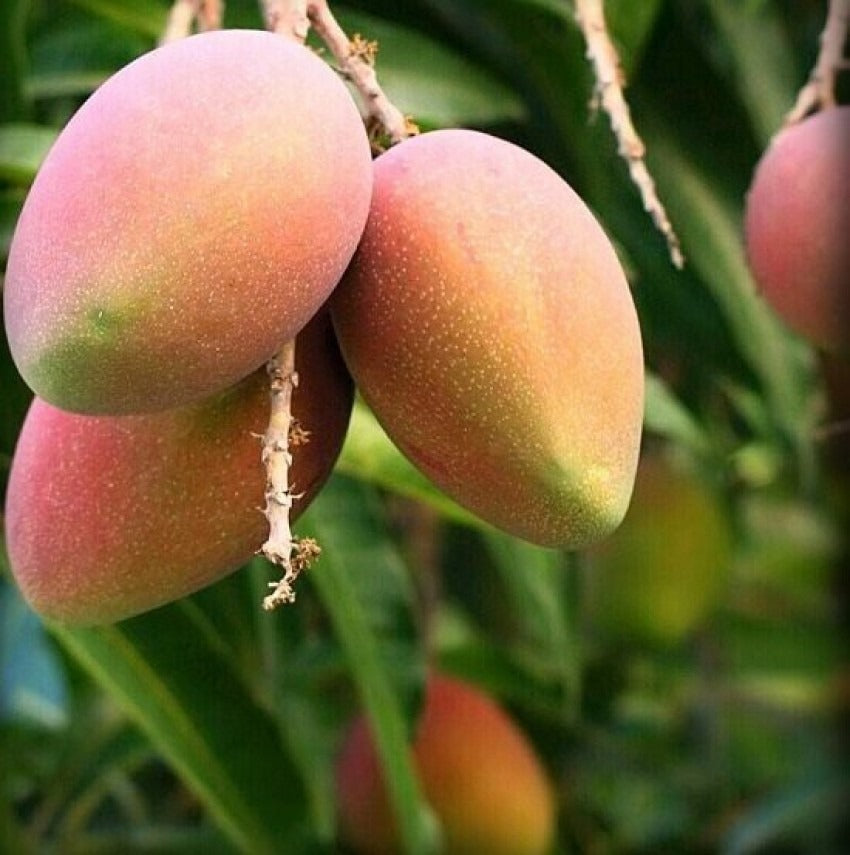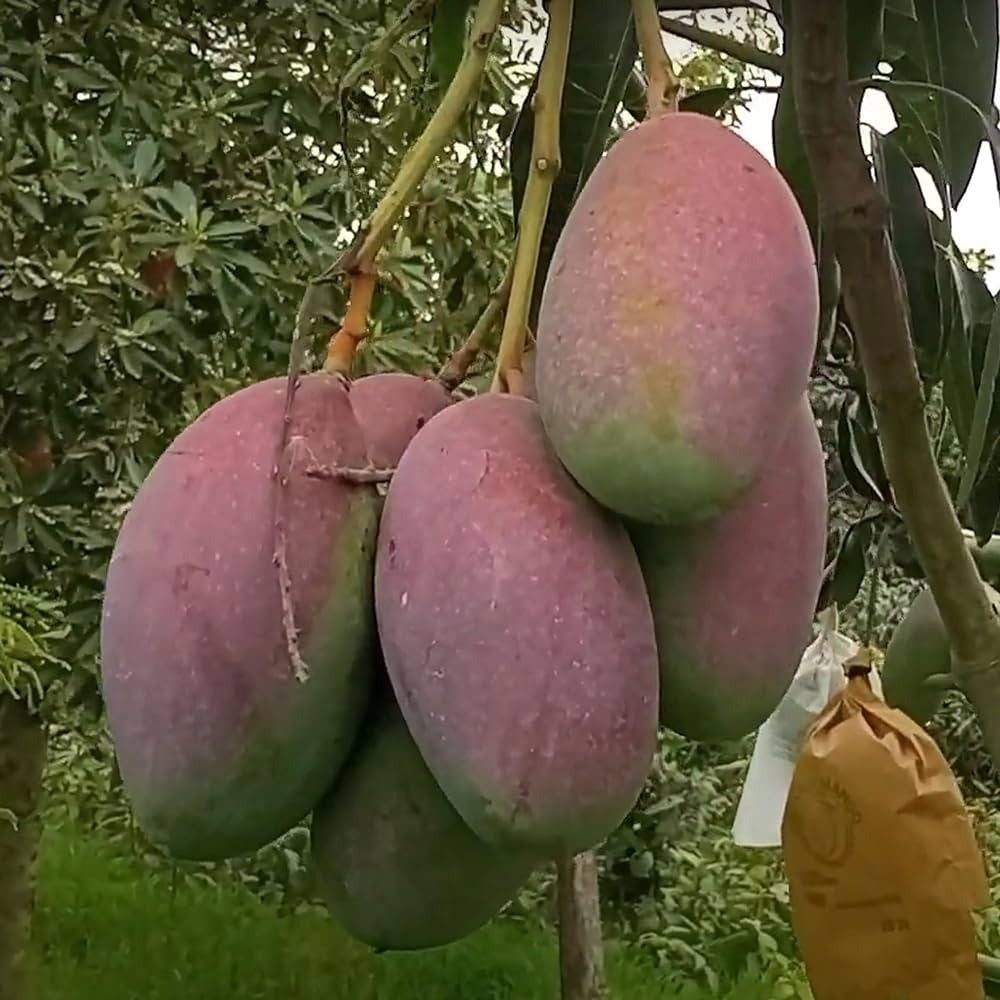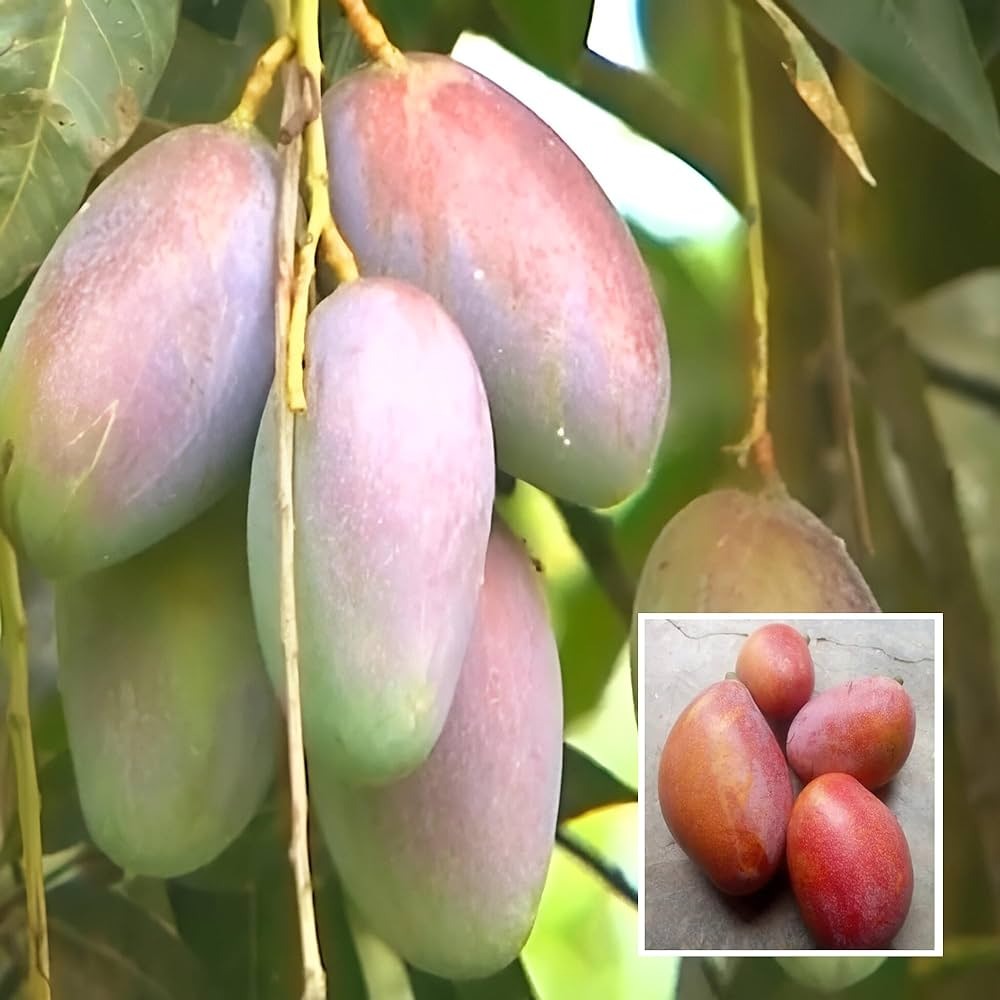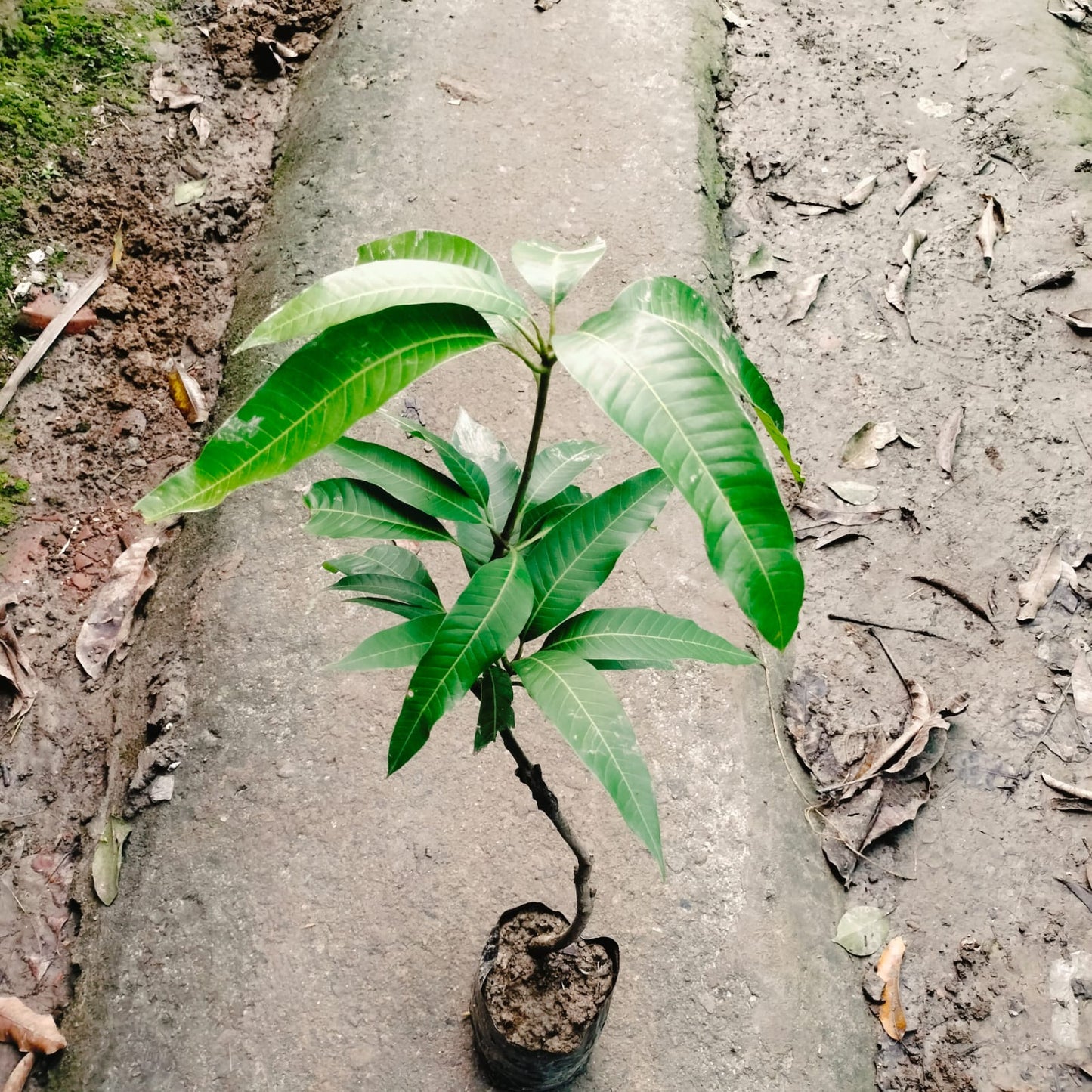Plantparadise
The "Bari -13" mango plant|Bangladesh Bari-13 Mango Sale online
The "Bari -13" mango plant|Bangladesh Bari-13 Mango Sale online
Couldn't load pickup availability
The "Bari -13" mango plant, also known as "Bari Mango-13," is a specific variety developed through agricultural research in Bangladesh, particularly by the Bangladesh Agricultural Research Institute (BARI). Here’s a description of this mango variety:
General Characteristics:
-
Plant Size: Bari-13 mango trees are typically medium to large in size, with a spreading canopy. They are well-suited to the tropical and subtropical climates of Bangladesh and similar regions.
-
Leaves: The leaves are lanceolate, dark green, and glossy, typical of mango trees. They provide dense foliage.
Fruit Characteristics:
-
Size: The mangoes produced by the Bari-13 variety are medium to large in size.
-
Shape: The fruits are generally oval-shaped with a slightly flattened appearance.
-
Color: When ripe, Bari-13 mangoes develop a bright yellow to golden skin color, sometimes with a slight red blush on the sun-exposed side.
-
Flesh: The flesh of Bari-13 mangoes is deep orange, juicy, and fiberless, making it highly desirable for fresh consumption. The flavor is sweet with a rich, aromatic fragrance.
-
Seed: The seed is relatively small compared to the fruit size, leaving a higher proportion of edible flesh.
Growth and Harvest:
-
Flowering Season: The tree typically flowers in the late winter to early spring months.
-
Harvest Time: Fruits are usually ready for harvest in the mid to late summer, depending on the specific growing conditions and climate.
-
Yield: Bari-13 is known for its high yield, producing a significant number of fruits per tree under optimal growing conditions.
Pest and Disease Resistance:
- This variety has been developed to be more resistant to common mango pests and diseases, although specific resistance may vary based on local conditions.
Uses:
-
Fresh Consumption: The fruit is primarily consumed fresh due to its sweet, juicy, and fiberless flesh.
-
Culinary Use: It can also be used in a variety of culinary applications, including juices, smoothies, and desserts.
Materials
Materials
Shipping & Returns
Shipping & Returns
Dimensions
Dimensions
Care Instructions
Care Instructions








